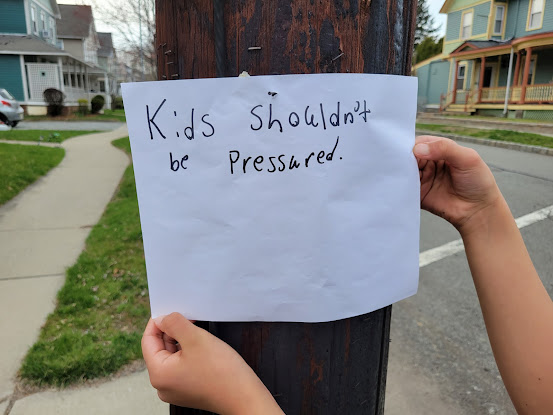Creating Posters
When I was a child I remember that every time I wanted to express that I had a feeling that was not happiness, I would get the same answer “Kids don’t have problems.” I couldn’t say the words depressed, upset, disappointed, etc. Any word that included a negative feeling was off the table, because what should I know right? I was a kid, and kids don’t have problems, right?
Button line I grew up without knowing how much I was repressing my feelings, maybe that is why as an adult it is so hard for me to confront people. I am aware that I grew up in different times and that the people who raised me did the best they could to the best of their knowledge. However, what can I do to break the pattern? What changes can I start doing even if they are little? These are the questions that I’ve been asking myself since I became a mother. My daughter Dahiana and I have a very close relationship. Is funny, I have heard many times that girls tend to be closer with their dads, but this is not the case with me and my daughter, she is way closer to me than her dad. This is why I feel the biggest responsibility is to break some of the patterns that I have carried on my back from past generations. Hopefully, those changes can make my daughter a better person. After all, isn’t that most of all a parent's dream?
Long story short, our living situation is a little uncomfortable at the moment, for financial reasons, my father-in-law is living with us. My father-in-law is a hoarder and an alcoholic. It is uncomfortable to live with him, his room is a mess, and I have to watch out every day and clean up after him. Yes, it is very stressful for me and my husband, but I never stopped and thought about it. What about Dahiana? How does she feel about it? So I sat down with her and we had an honest conversation. Dahiana feels the same things that I do, she feels as frustrated as I am, and she gets mad when I get mad too. In this conversation, I assured her that it was safe and that she could trust me. This is how my intervention was born.
For this intervention, I wanted to do something simple, but at the same time effective. After I talked to my daughter I asked her to write whatever she was feeling or any message that she wanted any adult to read. A message that would stay in the mind of any person who reads it. This is what she did:
At the moment she didn’t know what to do with it, but I did not suggest anything, I let her think about what to do with it. In the end, it was her message, and she had the right to do with it what she wanted. “As any good teacher can attest, role learning lasts only about as long as the next test. If you want your students to remember the lesson, and to integrate it into their lives, they need to puzzle through it, process it, and make it their own.” (Duncombe, Lambert 90) As her mom and her mentor, I gave her the freedom to speak, but I also wanted her to figure it out on her own the rest. She gave me one of the posters and she took a picture of me.
Later on, she asked me if it was ok if we hung one of the signs in the streets, and so we did! We were talking about how great the idea of some random person reading that poster without knowing who read it or why. But we were talking about how that message would stay in the mind of whoever reads it.
My hope with this project is that more parents feel motivated to have honest conversations with their children. I will continue to make more signs with my daughter and we will keep hanging them on the streets. Hopefully, it is changing the day of whoever reads it, and hopefully, it will raise questions and some minor changes. As Kimberly states in her book “Protest is way more complicated than communicating rage. Small actions foster change. Our activism, like any other part of ourselves, develops into something bigger than a singular experience. Activism is a collective action and an investment in the lives of other people.” (Drew 61) I hope our small effort can do something good in the future, and we can change some lives, and in the best-case scenario, more people would join us and do the same.
I also took some portraits of my daughter, and I think it was very interesting to see the mature expression on her face as we've been speaking more openly. Here they are:
Works cited
Drew, Kimberly. This Is What I Know About Art. Penguin Young Readers Group, 2020.
Duncombe, Stephen, and Steve Lambert. The Art of Activism: Your All-purpose Guide to Making the Impossible Possible. OR Books, LLC, 2021.
Second walk hanging posters












No comments:
Post a Comment